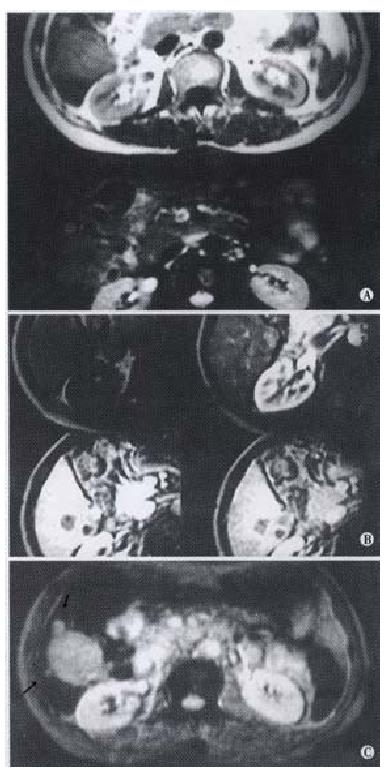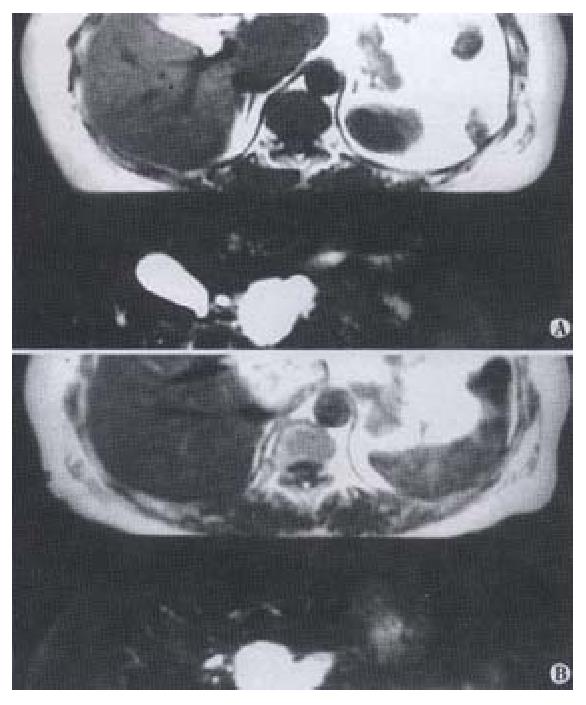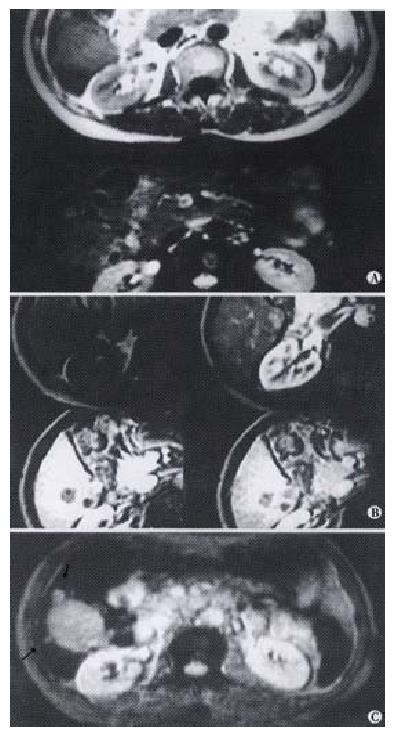Copyright
©The Author(s) 2002.
World J Gastroenterol. Feb 15, 2002; 8(1): 82-86
Published online Feb 15, 2002. doi: 10.3748/wjg.v8.i1.82
Published online Feb 15, 2002. doi: 10.3748/wjg.v8.i1.82
Figure 1 Primary hepatocellular carcinoma in posterior right lobe.
The lesions appear hypointenity on T1WI and mildly hyperintensity on T2WI (A). On Gd-DTPA enhanced images, early enhancement can be seen in arterial phase and appear relatively hypointensity in portal phase.(B) On SPIO-enhanced image, the conspicuity is clearer than pre-contrasted and Gd-DTPA enhanced images. Two micro-lesions(arrow) are obviously showed (C).
Figure 2 Hepatic hemangioma.
(A) The lesion shows hypointensity on T1WI and hyperintensity on T2WI on pre-contrast images.(B) After SPIO administration, the lesion become hyerintense on both T1WI and T2WI (arrow)
Figure 3 Focal nodular hyperplasia(FNH).
Before enhancement, the lesion (arrow) presents hypointensity on T1WI and heterogeneous hyerintensity on T2WI (A). After Gd-DTPA administration, the lesion is obviously en-hanced in arterial phase and remains hyperintense in portal and delayed phase (B). On T2WI after SPIO enhancement, the lesion(arrow) has focal signal loss compared with the un-enhanced image (C).
- Citation: Zheng WW, Zhou KR, Chen ZW, Shen JZ, Chen CZ, Zhang SJ. Characterization of focal hepatic lesions with SPIO-enhanced MRI. World J Gastroenterol 2002; 8(1): 82-86
- URL: https://www.wjgnet.com/1007-9327/full/v8/i1/82.htm
- DOI: https://dx.doi.org/10.3748/wjg.v8.i1.82











